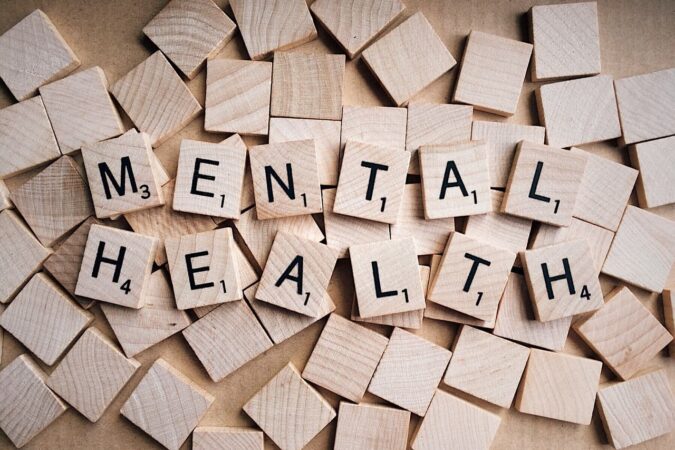Stoicism and Modern Mental Health: Ancient Wisdom for Contemporary Challenges
In a world characterized by constant change, uncertainty, and the fast pace of modern life, mental health issues have become increasingly prevalent. Anxiety, depression, and stress are now common experiences for many people. While contemporary solutions often involve therapy and medication, there’s a growing interest in ancient philosophies that offer timeless wisdom for navigating these challenges. Among them, Stoicism stands out for its practical and enduring approach to mental resilience.
The Core Principles of Stoicism
Stoicism, founded in the early 3rd century BCE by Zeno of Citium, is not merely a set of abstract ideas but a practical philosophy designed to improve one’s life. The core principles of Stoicism revolve around understanding what is within our control and what is not. This dichotomy forms the basis of Stoic thought, teaching that our responses to external events are the only things truly under our control, while the events themselves are not.
This principle has profound implications for modern mental health. By focusing on what we can control – our thoughts, emotions, and actions – we can cultivate a sense of inner peace, regardless of external circumstances. In a world where we are constantly bombarded by information and expectations, this focus on internal control can be a powerful antidote to anxiety and stress.
Stoicism as a Tool for Mental Resilience
One of the most valuable aspects of Stoicism is its emphasis on resilience. The Stoics believed that adversity is an inevitable part of life, but it is our perception of adversity that determines its impact on us. This idea is encapsulated in the Stoic practice of amor fati, or the love of fate, which encourages embracing life’s challenges as opportunities for growth.
Modern psychology echoes this sentiment, particularly in the field of cognitive-behavioral therapy (CBT), which draws heavily on Stoic concepts. CBT teaches that our thoughts influence our feelings and behaviors, a notion that Stoics like Epictetus and Marcus Aurelius emphasized centuries ago. By reframing negative thoughts and focusing on constructive responses, individuals can develop greater mental resilience.
Interestingly, this approach is not unlike the strategic mindset required in certain games of chance, where the outcome is uncertain, yet the player’s strategy and mindset play crucial roles in navigating the experience. For those interested in the interplay between strategy and mental resilience, exploring the dynamics of such games can offer valuable insights. Engaging in certain gaming scenarios, where decision-making under uncertainty is key, can reflect the Stoic principles of controlling what you can and accepting what you cannot. For a deeper understanding of how different strategies can impact outcomes, you might explore https://playfortuneforfun.com/ for a variety of strategic games that require such a mindset.
Practical Stoicism for Everyday Life

Applying Stoicism to modern life involves more than just intellectual understanding; it requires daily practice. One such practice is the Stoic exercise of premeditatio malorum, or the premeditation of evils. This involves visualizing potential challenges and setbacks before they occur, allowing us to mentally prepare and respond with equanimity when they do arise. By regularly engaging in this practice, individuals can reduce their fear of the unknown and increase their psychological preparedness.
Another important Stoic exercise is gratitude. The Stoics emphasized the importance of appreciating what we have, rather than constantly seeking more. This focus on gratitude aligns closely with modern positive psychology, which recognizes gratitude as a key component of well-being.
Furthermore, Stoicism encourages us to align our actions with our values and to live with integrity. This alignment between values and actions is crucial for mental health, as it fosters a sense of purpose and meaning in life. When our actions reflect our values, we experience less internal conflict and greater overall satisfaction.
As with any philosophy or practice, the effectiveness of Stoicism lies in its consistent application. Just as one might practice mindfulness or physical exercise to maintain well-being, Stoicism requires regular reflection and application to yield its benefits.
For those seeking to deepen their understanding of Stoic resilience, it’s interesting to consider how calculated risk-taking in modern contexts mirrors Stoic decision-making. For instance, in some forms of entertainment, like bonus buy slots demo, players are offered the option to directly purchase access to bonus rounds. This decision involves weighing the potential rewards against the inherent risks – much like how Stoics advocate for making informed decisions while accepting life’s uncertainties.
Conclusion
In a world where mental health challenges are increasingly common, Stoicism offers a time-tested framework for cultivating resilience, inner peace, and a sense of control over our lives. By focusing on what we can control, reframing our perceptions of adversity, and aligning our actions with our values, we can apply Stoic principles to navigate modern challenges with greater ease. Whether through philosophical study or practical application in everyday life, Stoicism remains a powerful tool for enhancing mental well-being in our contemporary world.
The Ethics of Chance: A Philosophical Examination of Gambling
In a world characterized by constant change, uncertainty, and the fast pace of modern life, mental health issues have become increasingly prevalent. Anxiety, depression, and stress are now common experiences for many people. While contemporary solutions often involve therapy and medication, there’s a growing interest in ancient philosophies that offer timeless wisdom for navigating these …
Philosophy of Artificial Consciousness: Can Machines Ever Truly Think?
In a world characterized by constant change, uncertainty, and the fast pace of modern life, mental health issues have become increasingly prevalent. Anxiety, depression, and stress are now common experiences for many people. While contemporary solutions often involve therapy and medication, there’s a growing interest in ancient philosophies that offer timeless wisdom for navigating these …
